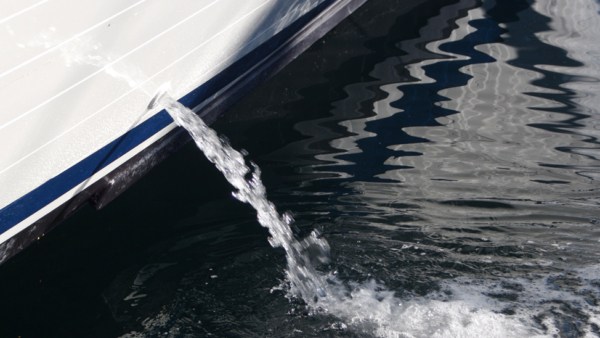Everyone needs to think about the world we live in as something we should collectively protect and keep clean – a sailor’s task is to keep a particular watch over the oceans and waterways. It’s our duty to be responsible and not leave it in worse condition than when we found it. And if we can, it wouldn’t be bad if we tried to do a little clean-up while we’re out there. Here are seven things to think about to keep our waters beautiful and healthy.
- Don’t be a sucker! Lose the straws.
Straws are one of those things that no one really thinks too much about but between kids and tropical cocktails they often end up on the boat in abundance…then they end up in the water wreaking havoc. Plastic straws seem relatively innocuous but because they’re not connected to anything and serve no use after the drink is finished, they’re prime candidates for ending up loose and then making their greatest contribution in the most negative of ways. Do we really need straws anyway? Captain Cook charted the South Pacific with zero straws! Shackleton, Slocum? No straws.
- Flying Plastic!
Try to be more mindful of what’s happening in the cockpit. Entertaining on a day sail usually means managing bags of snacks, lunch containers, drinks, and various wrappers. How many times on a 12-knot day have you seen a plastic bag fly off like a little parachute after that last sandwich gets unpacked? There is a tinge of guilt and life moves on but these things don’t break down and really do cause big problems in the ocean ecosystem. Try to incorporate reusable bags and be extra vigilant when unpacking so the “parachute effect” doesn’t occur. It’s a quick “oops” moment for us but a problem that will outlive us in its new habitat.
- Get in the habit of using reusable water bottles.
More and more people are carrying around their own reusable water bottles these days and sailors should definitely form that habit. We’ve all seen an empty plastic water bottle suddenly jump overboard to begin its new life as a never-dying toxin that will only wreak havoc wherever it goes. Get a cool water bottle and encourage your crew to do the same.
- Pick up floating balloons (practice MOB)
There are many places in the world where plastic floating balloons are all over the place. They mainly come from larger party boats that hold celebration events and the balloons inevitably get loose, make for the sky, then later land in the ocean. Sure, Marvin had a great birthday but the ocean’s inhabitants shouldn’t have to pay the price. We believe picking up these balloons when they are spotted is a great excuse to both clean up the water around us and practice Man Overboard. Next time you go out, grab a net and tell the crew that if they spot one, it’s MOB practice time.
- No spillage ever!
Boats, particularly older ones, can be leaky little rascals, but let’s do our best to make sure they’re not. Before the season starts go through everything and check on the usual suspects – fuel lines, oil-related components, transmissions, etc. Once the boat is in the water and being sailed regularly, check the bilge often and make sure the water always looks clean and clear (if there is any). If you have a mechanic, ask him to inspect any of the places where potential leaks can begin and address any issues. You don’t want to be the one whose boat just happens to be in the middle of an enormous shiny diesel spill with coughing ducks and seagulls all around.
- Dump holding tanks at a pump-out
While human waste isn’t as toxic for the environment as oil or gasoline, it’s still something that needs to be discarded of properly especially in the confines of harbors and the like. In some areas, it’s acceptable to dump holding tanks a certain amount of distance offshore but using the pump-out is the way to go. Make sure you use environmentally friendly chemicals in the holding tanks as well.
- Consider environmentally friendly bottom paint
The Environmental Protection Agency has been after many marinas across the country regarding the cleanliness of their water. They are urging boaters to use non-copper based bottom paints because of their toxicity. There are arguments back and forth about this, but for those who haul out the boat every season anyway, checking out a more environmentally agreeable bottom paint is a good idea. For those who dive and clean the bottom themselves, understand what are the correct pads to use so you’re not creating a bloom of nasty copper for the fishies to choke on. This is probably an issue that will eventually get resolved through technological development, but for now, if moving away from copper paint is possible, why not do it?













